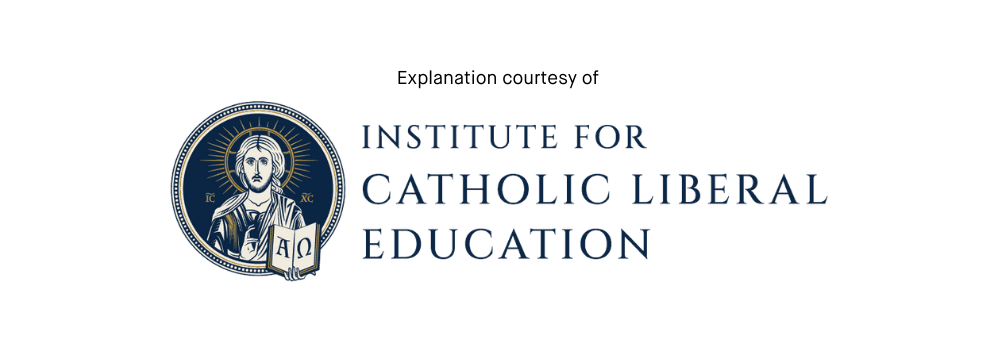
What is Classical Education?
An Introduction
The goal of a classical education is the cultivation of wisdom and virtue. One of the ways that we accomplish that goal at St. John Paul the Great is by nourishing the souls of our students (and our faculty) with repeated opportunities to encounter Truth, Goodness and Beauty, both within and outside of the classroom. As a classical school, we aim to habituate our students to discipline their appetites and rightly order their loves so that they are free to love what is worth loving.
Classical educators take seriously their role as stewards of an educational tradition that dates back to ancient Athens. We believe that it is not wise to silence our ancestors. We strive to pass on to our students what is True, Good and Beautiful in the tradition while also helping them to see how that tradition can equip them to flourish as faith-filled Catholics in the modern world.
We desire to partner with parents to form human beings who know how to live in accordance with reality. We want our graduates to be men and women who know the Truth, do the Good and love the Beautiful, not just when they’re eighteen, but also when they’re thirty-five, fifty-five, and seventy-five. Recognizing that parents are the primary educators of their children, St. John Paul the Great partners with families who desire something more than the “business-as-usual” models of schooling that are as ineffective as they are prevalent.
Additional Resources
Our Curriculum at JPG - Learn More
Lumen Accreditation - Learn More
Meet our Faculty - Learn More
Frequently Asked Questions
-
At St. John Paul the Great, our teachers adopt a deliberately low-tech approach in our classrooms. Our students spend time reading great old books, annotating them, narrating them, and discussing them with their peers under the guidance of wise and patient instructors. Our students memorize and recite poetry, discuss things in class, and write papers by hand. Our teachers make deliberate efforts to integrate and harmonize what our students are learning in different disciplines. It’s not uncommon to hear students talk about a text that they’re reading in Literature class while they’re studying Theology, or an idea from Music in Humanities Seminar. Even in our math and science classes, which are aimed at moving our students toward mastery of a discrete body of knowledge and skills, it is not uncommon for our teachers to pause and encourage students to marvel at the beauty of what our students are learning, drawing their attention to how those disciplines help us to more fully love God and understand our place the Cosmos.
-
Our math and science classes are aimed toward mastery of a discrete body of knowledge and skills that will enable our students to think well and prepare them for college. In our four-year mathematics formation, all students will engage in a deep study of algebra and geometry concepts at the underclassman level, and culminate in precalculus, calculus, and elective options for seniors. Additionally, students will read and discuss Euclid’s Geometry in their Humanities Seminar, giving them an opportunity to contemplate the beauty and order of numbers and what they can teach us about the nature of reality and the God who created us. In science, students will have an opportunity to study Biology, Chemistry and Physics with a state-of-the-art laboratory and teachers who know how to harmonize their passion for science with their Catholic faith.
-
In addition to the practical benefits that stem from the Latin influence on English vocabulary and the privileged place of Latin in the life and history of the Roman Catholic Church, the study of Latin also forms our students in the habits of thinking more logically and attending to order and structure in language.
-
No. The school does not assume any prior Latin exposure. All students, regardless of previous Latin experience, will be placed in Latin 1.
-
It’s hard to think of two more useful qualities for a young adult to have—and two which are more lacking on most college campuses today—than wisdom and virtue. A classical education will help your son or daughter to cultivate both. Additionally, our graduates will have spent four years carefully reading and discussing many of the great books of history and practicing the powerful skills of narration, memorization, and annotation on a nearly daily basis. A student who graduates from St. John Paul the Great will be habituated into the skills of deep learning, something that will set them apart from their collegiate peers no matter what discipline of study they end up pursuing.
-
We draw families from many different middle schools and do not assume any previous knowledge or proficiency in modes of classical education. If your son or daughter is eager to learn and humble enough to receive guidance from the wise and patient teachers at St. John Paul the Great, he or she will quickly pick up the skills and habits necessary to fully reap the rewards of a classical education.
Classical Education Explained in 2 Minutes
What’s the difference?
Classical, liberal-arts schools are sweeping the nation - and for good reason - classical education simply works.
Contemporary Education
Ordered to material, temporal ends
Fragmented, industrialized
Focus on practical skills
Emphasis on information
One mile wide, one inch deep
Lectures + testing = passive learning
Susceptible to indoctrination
Classical Education
Ordered to eternal happiness
Integration of subjects, knowledge, faith
Restores meaning and purpose
Formation; awakens wonder
Cultivates habits of deep thinking
Constant discussion = active learning
Develops intellectual freedom


